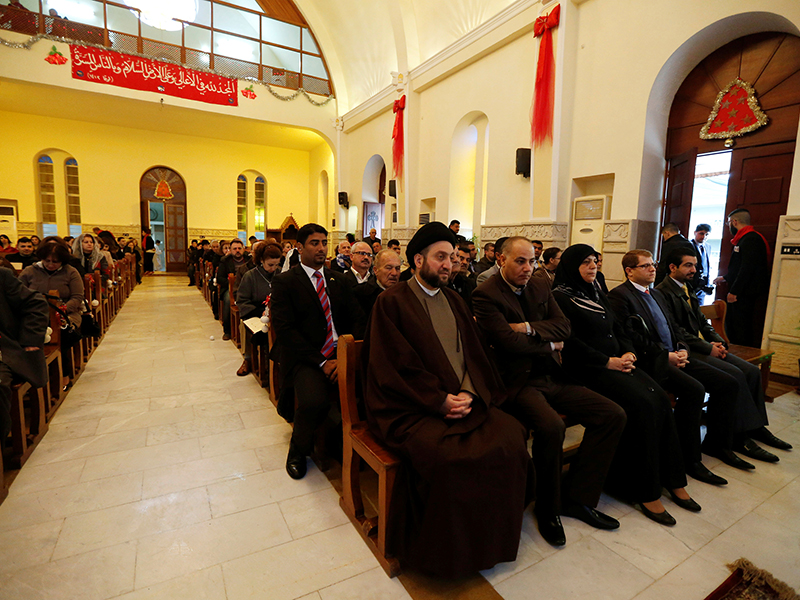Bagdad, Erbil- Ammar al-Hakim, leader of the Islamic Supreme Council of Iraq (ISCI), is carrying out local and regional visits – Hakim and his accompanying delegate arrived to Kurdistan on Saturday where he was received at the airport by Prime Minister of the Kurdistan Regional Government Nijirfan Barzani.
Hakim’s first regional visits were to Jordan and Iran two months ago.
In a concise statement, Hakim’s bureau revealed that the delegation will carry out a series of negotiations with officials in the regional government within the communication with Iraqi Kurdistan.
Although some members of the Citizen Bloc, led by Ammar al-Hakim, tried to put the visit under a general frame, observers see that the visit falls under Hakim efforts to promote the national or historic settlement suggested by United Nations Assistance Mission for Iraq (UNAMI).
Despite the critics of this reconciliation and the rejection of some Shi’ite and Sunni groups, Hakim is seeking to persuade the political parties of the project.
The document includes several concepts that aim at a national settlement that result in an Iraqi historic reconciliation.
Sami Al-Gezani of the Citizen Bloc told Asharq Al-Awsat that this visit will tackle three major points: the historic settlement, Iraq after ISIS and the pursuit to find joint agreements among Kurdistan region’s components because its stability reinforces Iraq’s stability. Yet, he did not expect the visit to have a quick outcome.
Mohsen al-Sadoun, a member of parliament for the Kurdish Alliance, agreed with Gezani’s statement saying that in this visit various topics will be discussed, mainly the war against ISIS, the economic condition and Mosul after liberation.
